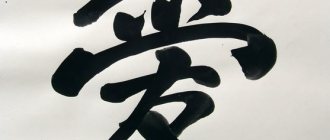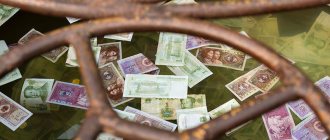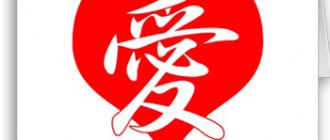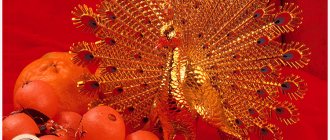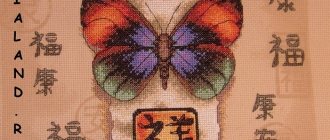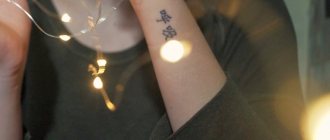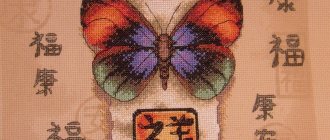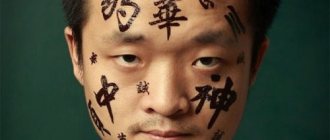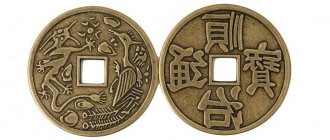On the eve of the Chinese New Year, various traditional holiday attributes appear on supermarket shelves, among which you can see red envelopes with wishes for prosperity. Red hongbao (红包, hóngbāo) envelopes are the most popular way to give a gift in China. Money is invested in such envelopes and presented to relatives, friends, newlyweds at weddings, and traditionally in organizations employees are given a holiday bonus in such envelopes.
Red envelopes are not just money, they are also a wish for well-being and prosperity. Red is the most popular and auspicious color in China, it symbolizes good luck and happiness. The envelopes are decorated brightly, congratulations are often embossed with large gold hieroglyphs.
Origin and meaning of the red hongbao envelope
In ancient times, there was a certain little demon called Sui 祟. He emerged from his underground lair on New Year's Eve and went into settlements to harm children. Sui touched the sleeping child's head with his hand, and the baby's temperature rose, after which he began to delirium. And when the temperature subsided, the child could turn into a weak-minded person.
Therefore, in order to prevent the machinations of the demon, people did not sleep on New Year's Eve, they lit candles and sat all night by their child's bed.
Once, one married couple, on the night before the New Year, strung eight copper coins on a red thread to play with their son, thus preventing him from sleeping, but the baby still fell asleep. Then the parents did not wake him up, but decided to guard their son’s sleep themselves, praying near his bed, but unbeknownst to themselves, they also fell asleep.
But God heard their prayers and sent eight fairies to protect the family; the fairies turned into coins lying under the baby's pillow.
Suddenly a strange wind arose, opened the doors and windows, and even the candle flame went out. The evil demon Sui appeared. Just as he was about to reach out and touch the child's head, eight rays of golden light suddenly burst out from under the pillow and the demon jumped out of the window in horror.
The news of this incident quickly spread first throughout the village and then throughout the country. People realized that when parents sincerely pray, God sends eight guards who, under the guise of coins, protect their children. Therefore, people began to string eight coins on a red thread and put them under children's pillows. Since then, this has become an annual custom, and the Sui monster no longer appears.
Such envelopes with money began to be called “yasuiqian (压岁钱)”, that is, money that protects against Sui.
The demon's name Sui (祟) sounds the same as the word for "year" (年) - "sui". Over time, the hieroglyph for the name of the demon in the word “yasuiqian” was replaced with the hieroglyph for “year.” And over time, coins were replaced with paper bills, and thread with envelopes.
Cutting patterns from paper
Jianzhi (paper cutting) is a common tradition during the Spring Festival. The tradition began thousands of years ago as a way of worshiping the gods.
Paper cutting - jianzhi - is one of the traditional folk arts and crafts of China, which was recently classified as a world cultural heritage by UNESCO.
The most common themes for carving are the symbol of fu (happiness), yu (fish) and the zodiac animal of the current year. Paper cuttings are also common at weddings and other Chinese celebrations. The cutting is almost always done from red paper.
How much money should you put in the red envelope?
How much should you put in an envelope so as not to offend the recipient? For some, this dilemma can be a real headache.
It all depends on your income, which will determine the thickness of the envelopes you hand over. On average, in large cities the following amounts are donated:
- Senior people (parents and grandparents): 500–2000 yuan;
- Teenagers (schoolchildren and students) (relatives and colleagues, children of close friends): 50–200 yuan;
- To your children: from 100 yuan and up to the amount you deem necessary;
- Employees: 100–1000 yuan (awarded on the last working day before Chinese New Year);
- Other children: 10 or 20 yuan.
The closer the family ties, the higher the amount of the gift; for the closest ones it can reach up to 6,000 yuan.
Fish
Fish is a very common theme in Chinese Spring Festival decorations, mainly because of the overall blessing during the New Year - "may you have fish every year" 年年有鱼, nián nián yǒu yú. In Chinese, the word for fish, yu, is similar to the word for abundance.
Thus, when you wish for a Chinese to have fish every year in China, you also want him to never have a shortage of food and money.
Therefore, fish is a common decoration not only during the Chinese Spring Festival, but also for anyone hoping for a little “abundance” in their lives.
What to Avoid When Giving Red Envelopes
Since the Chinese are very superstitious, you may wonder what amount would be considered auspicious. The amount of money contained in the envelope must end with an even number; odd amounts of money are traditionally associated with funerals. The exception is the number 9 (九), since it is a homophone to the word long (久) and is also the largest number.
In some regions of China, odd numbers are preferred for weddings because they are difficult to separate.
There is also a widespread tradition that the number 4 should not be present in the sum, for example, 40, 400 and 444 etc., since the pronunciation of the word four (四) is a homophone to the word death (死).
In the northern region of China, even number sums such as 100, 200, 500, 800 and 1000 are popular, while sums such as 250, 400 or 740 should be avoided. In the south of the country, people will send packages of money worth 88, 666, 888 or 999 yuan as these numbers are considered favorable. Such numbers usually mean wishes for prosperity and smooth development.
It is also important to put new, crisp banknotes and no coins in the envelope, which is why many Chinese are forced to stand in line at the bank before the New Year.
What do the hieroglyphs on the money envelope mean?
Drawings are drawn on the envelope with gold paint, each of which has a special meaning. The golden color also serves as an activator of monetary energy, and the writing of hieroglyphs itself is a real art that carries a special purpose.
Envelope "Prosperity"
Attracts continuous financial flows, so it is advisable to store money for current expenses. As they say in Chinese culture, the money in this envelope will not run out, but only increase. It is recommended to carry it in your purse or keep it in a safe.
Envelope "Wealth"
Designed for long-term accumulation of funds, it is believed that this is the most effective talisman. It is recommended to only put new bills in the envelope and not touch it until the required amount of money is collected. You should think in advance how much you would like to collect, and in a short time it will attract the required amount. Suitable for those who cannot save the necessary funds for an expensive purchase or trip. Such a talisman will help not only not to waste the collected money, but also significantly replenish it.
Types of red envelopes
Envelope "Justice"
Suitable for those who took out a loan or borrowed money, but feel sorry to give it back. It will help you collect and return the required amount in a short time, and when you return the money, it will help you maintain positive emotions and give you a feeling of satisfaction. As a rule, giving money with a pure soul will attract financial flows into your home.
Envelope with star elders Fu, Lu and Shou
A talisman with the names of three Chinese gods signifies luck, money, success, youth, power and longevity. By giving such an envelope to your loved one, you wish him financial success and health for many years to come.
Envelope “Big Luck”
It has a wide range of purposes, with its help you can fulfill various wishes: meet long-awaited love, strengthen a family marriage, achieve noticeable success in business. You need to write down your cherished dream, put the sheet with your wish in an envelope and hide it away from prying eyes. If you believe the Chinese, the talisman will contribute to its fulfillment in the near future. It is also recommended to put other people’s money for safekeeping in such an envelope. If you then give them to a person in the same envelope, then you can soon increase your well-being. It should be kept away from others.
When choosing an envelope for certain purposes (collecting, donating, giving away), you need to take into account all the nuances of their purpose and at the same time be in a positive mood. All actions should be carried out sincerely and from a pure heart, then financial well-being will not take long to arrive. To achieve non-financial goals, there are envelopes of good luck, on which the corresponding signs are applied.
Expert opinion
Melnik Dmitry
feng shui master
Talisman envelopes help you learn how to handle money and protect you from large losses. But it should be remembered that each person has his own destined destiny and it is simply impossible to change anything radically. Not everyone is destined to be rich, and you have to accept that, but there is something more important than money. Envelopes made according to Feng Shui help fulfill natural desires, gain health and youth for many years.
Etiquette when receiving a red envelope
When you receive a red packet, you must first thank the giver and express your blessings to him. It is impolite to immediately open an envelope and check the amount inside, which is contrary to etiquette in Western countries, where gifts are opened immediately. If you do this, the givers will feel awkward.
When someone gives you lucky money, you shouldn't give them your package right away in return. It will feel like a simple exchange, but not like a holiday gift.
Chinese lanterns
During Chinese New Year, lanterns are everywhere. They are always red in color and round or oval in shape. They can be made of paper or fabric, and decorated with black or gold calligraphy, and sometimes simply with symbols of prosperity.
Good wishes on Chinese New Year lanterns relate to happiness, peace, good fortune and prosperity.
The New Year holiday ends on the 15th day of the first month according to the lunar calendar. On this day, Yuanxiaojie, or Lantern Festival, hundreds of thousands of lanterns rise into the sky, creating an unforgettable spectacle.
Electronic red envelopes
During the 2014 Lunar New Year holiday, instant messaging service WeChat introduced the ability to distribute virtual red envelopes containing money to contacts and groups through its mobile payment platform. This feature immediately became very popular, with billions of virtual envelopes now being sent during the Chinese New Year holidays.
WeChat (微信, Wēixìn, literally “micromessage”) is a mobile communication system for sending text and voice messages, developed by the Chinese company Tencent, the first release was released in 2011.
And now, thousands of years later, even in the digital age, the Chinese still continue the good tradition and red envelopes still bring happiness to both children and adults. After all, this is a manifestation of love and gratitude to each other.
From the history
Red envelope for money
Red color carries powerful Yang energy and is considered the most successful color in the East. It is associated with youth, strength, activity, power and wealth. During the Qin Dynasty, coins were tied with a red thread, believing that they would ward off bad luck and evil spirits and bring health to their owner. Much later, the coins were replaced by red envelopes. That is why in China the tradition has been honored and passed on for centuries: to store and give money in red envelopes. Elderly Chinese believe that these envelopes attract happiness and longevity to the person giving them out.
The apartments do not have showers or heating
Very often, Chinese apartments may not have a shower or bathtub, but only a drain in the floor, which is extremely inconvenient. In old houses there are bars on the windows, and not only on the lower floors, but everywhere. Kitchens are most often very small, because they only cook in them. They prefer to eat in the living room.
Heating in houses is a rare thing even in the north of China, and in the south it does not exist at all. When it's only 10 degrees outside, it's not very comfortable at home. Then electric heaters come to the rescue.
It’s difficult to say how much utility bills can cost on average. Water and electricity are consumed according to the meter. And prices differ in the provinces. Plus, rates vary depending on the house itself.
God of the Hearth
God of the Hearth 灶君, Zào Jūn, is a traditional deity widely revered in ancient China. His image is hung in the kitchen and he is believed to be the protector of the family.
At the end of the year, the God of the Hearth goes to heaven to report the family's affairs to the Jade Emperor. To prevent God from saying anything bad, his lips are smeared in the portrait to sweeten his words, and glutinous rice is placed as an offering so that his mouth is too full to speak. And at the end of the year, his image is burned so that he can return to heaven.
Gate Gods
This tradition dates back to the Tang Dynasty. The Emperor had a bad dream in which a ghost was looking for him in the palace. Since the people of China at that time took ghosts very seriously, the emperor asked his two top generals to stand guard at his door while he slept. On subsequent nights, the emperor simply hung portraits of the generals in front of his door to protect himself.
This story spread throughout China, and to this day, Chinese people post images of these gate gods at the entrance of their homes during the New Year to ward off evil spirits and bring good luck.
Tax amount depends on income
Income tax for individuals can range from 0 to 45% depending on the size of the salary. Thus, Chinese with a monthly income of up to 4,000 yuan (that’s almost $620) are exempt from paying personal income tax. And with a salary of more than 100,000 thousand ($15.5 thousand), the employer will withhold 45% tax from them. This applies only to salary, this does not include bonuses, bonuses from the employer, and so on.
China also has an income tax for foreigners who work or do business in China while staying in the country for more than 183 days a year. It is 5% of income.
In general, China has a progressive tax model, with many tax incentives for businesses and excellent tax conditions in developing areas.
There is only paid medicine
To see a doctor, you will need money. Medicine in China is free and very expensive for everyone: one general blood test can cost about 4,000 rubles. But any diagnosis is done very quickly, the system is perfectly debugged: the results come within a few hours.
Local residents and foreigners, burdened with experience, prefer to buy health insurance. Its cost can be completely different, it depends on the range of services provided. Typically in China, insurance is issued for six months. On average, a six-month policy costs 3,000 yuan (about $465). The insurance must contain a list of hospitals to which you can apply.
Buy travel insurance
Calculator Sravni.ru
Alternative medicine is highly valued in China. In pharmacies you can find many herbs and roots, which locals prefer to use for treatment more often than tablets. And medicines in Chinese pharmacies are produced mainly based on natural ingredients. If you don't know this, the dosage of 6 tablets 4 times a day can be very scary.
In general, the first “medicine” that the Chinese recommend is ordinary hot water. It is primarily recommended to drink it for colds or stomach ailments. In China, people mostly drink only hot water. It is believed that a decrease in body temperature from cold water leads to illness.
To boost immunity, locals like to place glass jars heated by fire on their backs.
Antibiotics are taken here as a last resort, and for this you should definitely consult a doctor, since they are sold in pharmacies strictly according to a prescription.
